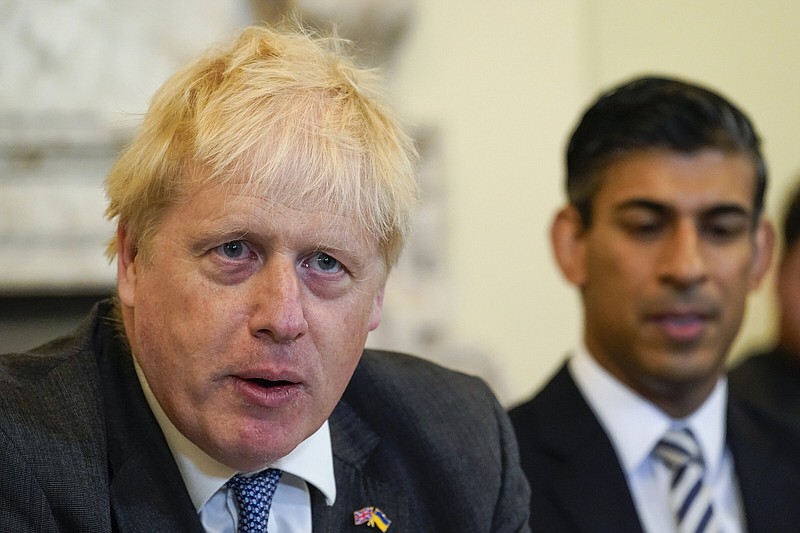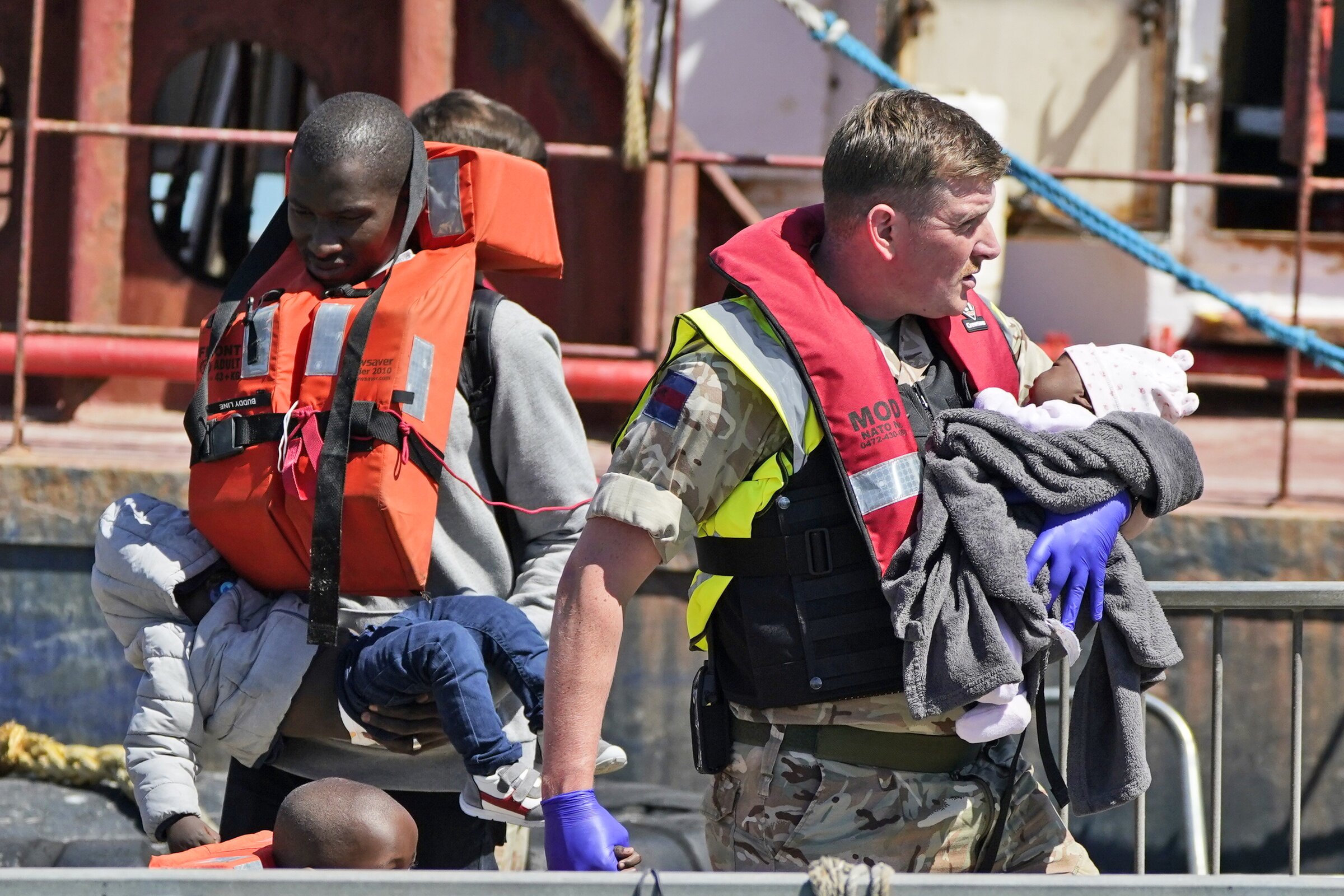LONDON -- Britain has canceled its first deportation flight to Rwanda after a last-minute intervention by the European Court of Human Rights, which decided there was "a real risk of irreversible harm" to the asylum-seekers involved.
The flight had been scheduled to leave Tuesday evening but lawyers for the asylum-seekers launched a flurry of appeals seeking to block the deportation of everyone on the government's list. It was unclear how many people would be on board. British media reported that individual appeals had whittled down the number of potential deportees to seven from more than 31 on Friday.
Foreign Secretary Liz Truss said earlier in the day that the plane would take off no matter how many people were on board. But after the appeals, no one remained. The decision to scrap the Tuesday flight caps three days of frantic court challenges as immigration rights advocates and labor unions sought to stop the deportations.
Earlier in the day, British Prime Minister Boris Johnson had emphatically defended the plan.
"We are going to get on and deliver" the plan, Johnson declared, arguing that the move is a legitimate way to protect lives and thwart the criminal gangs that smuggle migrants across the English Channel in small boats.
The prime minister announced an agreement with Rwanda in April in which people who enter Britain illegally will be deported to the East African country.
In exchange for accepting them, Rwanda will receive millions of dollars in development aid. The deportees will be allowed to apply for asylum in Rwanda, not Britain.
Rwanda has built a reputation for stability and economic progress since the 1994 genocide, the British government argues. Critics say that stability comes at the cost of political repression.
The world had more than 26 million refugees in the middle of last year, more than double the number two decades ago, according to the U.N. refugee agency. Millions more have left their homes voluntarily, seeking economic opportunities in developed nations.
Britain in recent years has seen an illegal influx of migrants from such places as Syria, Afghanistan, Iran, Sudan, Iraq and Yemen. Many migrants favor Britain as a destination for reasons of language or family ties, or because it is seen as an open economy with more opportunities than other European nations.
When Britain was a member of the European Union, it was part of a system that required refugees to seek asylum in the first safe country they entered. Those who reached Britain could be sent back to the EU countries they traveled from. Britain lost that option when it withdrew from the EU two years ago.
Since then, the British and French governments have worked to stop the journeys, with a great deal of bickering and not much success. More than 28,000 migrants entered Britain in small boats last year, up from 8,500 in 2020.
Opponents have argued that it is illegal and inhumane to send people thousands of miles to a country they don't want to live in. Activists have denounced the policy as an attack on the rights of refugees that most countries have recognized since the end of World War II.
"At a global level, this unapologetically punitive deal further condones the evisceration of the right to seek asylum in wealthy countries," said Maurizio Albahari, a migration expert at the University of Notre Dame in Indiana.
The U.N. refugee agency, Church of England bishops and, according to British news reports, Prince Charles are among those condemning the plan amid concern other countries will follow suit as war, repression and natural disasters force a growing number of people from their homes.
Filippo Grandi, the U.N. high commissioner for refugees, attacked the policy as "all wrong."
If the British government is truly interested in protecting lives, it should work with other countries to target the smugglers and provide safe routes for asylum-seekers, not simply shunt migrants to other countries, Grandi said.
"The precedent that this creates is catastrophic for a concept that needs to be shared, like asylum," Grandi said Monday.
The Archbishop of Canterbury and 24 other bishops from the Church of England joined the chorus of voices asking the government to reconsider an "immoral policy that shames Britain."
Politicians in Denmark and Austria are considering similar proposals. Australia has operated an asylum-processing center in the Pacific island nation of Nauru since 2012.

